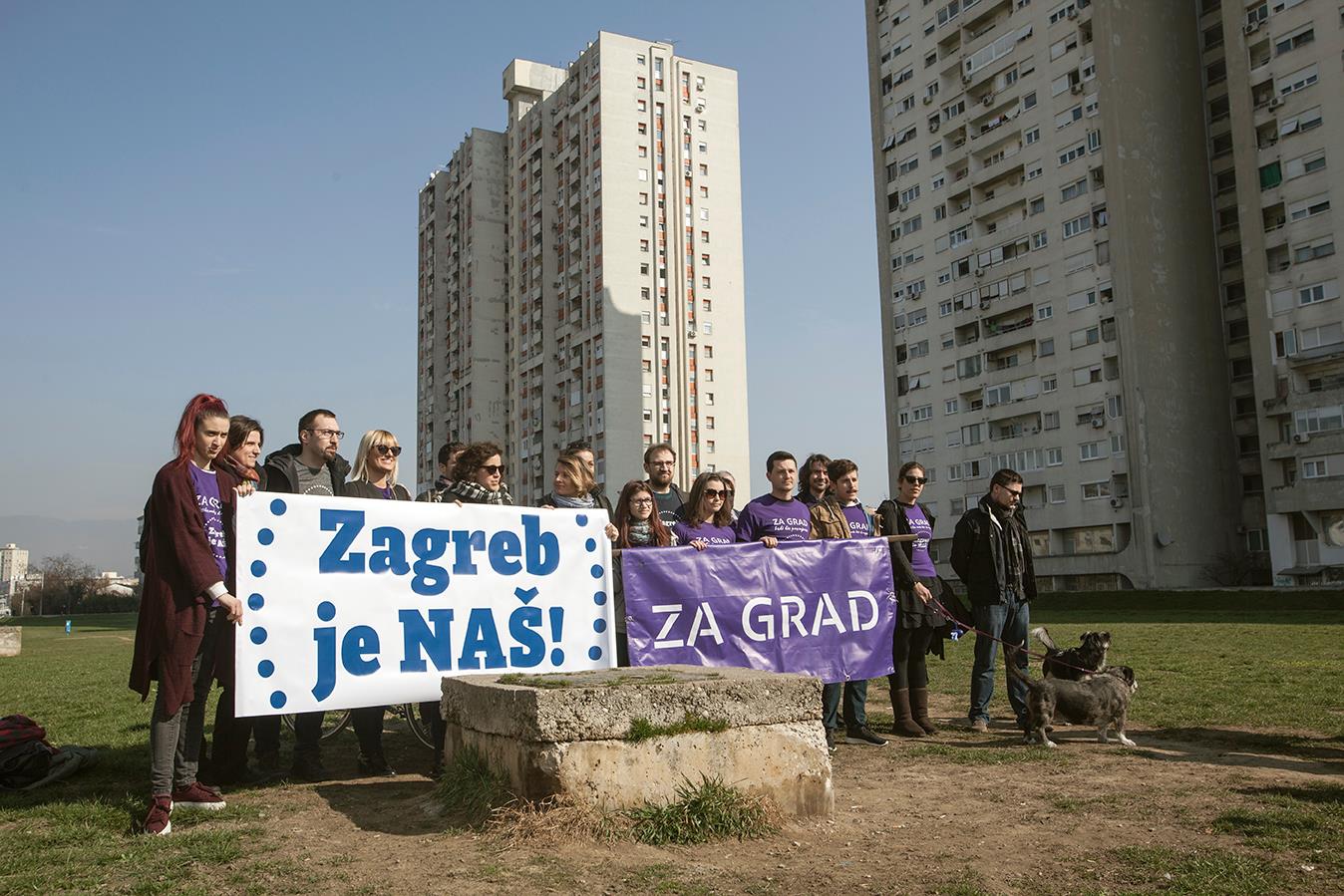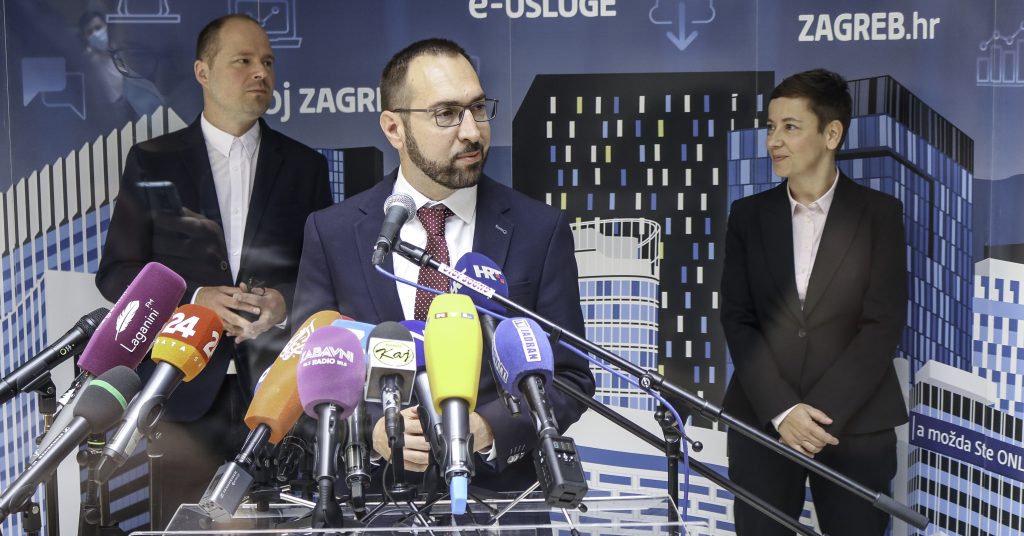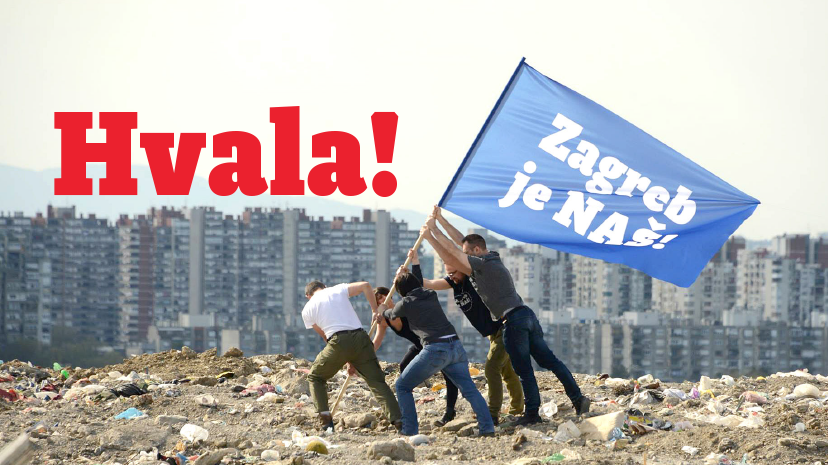What’s happening in the European Municipalist Network (EMN), of which Commons Network is a coordinating partner? In a series of blogs, our colleague Bea keeps you up to date.
During the past weeks, I interviewed three different people that are part of municipalist initiatives in Europe. The first interview was with Malin Widehammar from Democratic Transition/The Hub in Bergsjön, Sweden. Today, I interview Matko Duijmovic, a 23-year old public policy student who decided to return to his home country Croatia to join the political platform Zagreb Je Nas, meaning “Zagreb is Ours”.

Bea: Can you tell me about yourself and Zagreb Je Nas’ background, development, and current work?
Matko: My academic background is in public policy and I am currently waiting for my foreign diploma to be validated while I work in different projects and continue my work within the political platform of Zagreb Je Nas, which is formed by citizens of all social groups and aims to put politics back in the hands of citizens. The platform is the informal segment, part of which I have been for two years now; and then there is the political party of Zagreb Je Nas. The platform entered the city council of Zagreb in the local elections in 2017, and in 2019 the party ran for the Zagreb elections but only got some seats (4,5% in the mayoral elections). After 4 years of protests, activist organisations actively pointing out problems in current politics, etc; last year Zagreb Je Nas won 45% of the votes, which translated into 23 seats. For the past 5 years, the party was focused on the city government of Zagreb, but now there is also a national party forming with the same green, leftist, and municipalist policies.
Something I also want to emphasize is that Zagreb Je Nas follows a participatory model and environment founded on the principles of broad participation, inclusiveness, and openness. It focuses on methods to collectively create political proposals and on citizen involvement from the neighbourhood level to the city council. For instance, the party’s 250 page policy programme was written partially by more than 10.000 people, where some people would write around 5 sentences regarding their neighbourhood and others would focus on concrete public policy.
Bea: You are part of the platform but not of the party. Why and how does it work?
Matko: Zagreb Je Nas is a young movement. It got credit within the leftist educated youth, which ensured the party would win the elections. Due to that recognition, the party then had to protect themselves from opportunistic people wanting a direct way to get into politics or power. That is why it was decided to have the platform as a middle space for both informal involvement and regulating entry to the party. Within the bylaws of the party it says that anyone who wants to join the party first joins the platform, which is free and allows you to vote for and participate in many things, just not in some formal political parts.
Once you join the platform by contacting your local contact, you start in the local community in areas depending on your expertise and work at least 6 months on the platform. From there you work up, and a local representative can nominate you to join the party. This process makes joining the party selective but not exclusive. Personally, I have been on the platform for 2 years and I am happy with that casual form of involvement.

Bea: How is your work connected to the EMN?
Matko: The EMN works for and supports municipalist, local, grassroots, bottom-up, policies and politics, and that is what Zagreb Je Nas is all about. It was formed by activists, academics, entrepreneurs, ex-politicians, students that were abroad and came back, local individuals, all from different backgrounds. It inspired other municipalist actors throughout six different cities, two of them hold government, and others are collaborators in different projects. Zagreb Je Nas is very political and focused on community, but not as focused on activism, which is different to other actors that are also part of the EMN. However, Zagreb Je Nas has changed throughout time, going from being an association to a proper political party aiming to reform the capital of Croatia.
Bea: Why do you think it is important to have a network between municipalist actors in Europe? One which also organises meetings, skill-sharing sessions, etc.
Matko: I think I can speak of how hard it can be and often is. In Croatia, Zagreb Je Nas was not the first of its kind but it was the first successful one, so many other similar projects have failed. The biggest reason for this is that the establishment parties have tried to do everything in their power to suppress these movements, but another main reason is the lack of resources, networking, and support from outside the organisation. The EMN has tremendous value not only for supporting small movements, but also as a European institution that gives recognition and legitimacy to municipalist projects across europe.
Another reason for why an organisation such as the EMN is very important is that it connects different local movements, creating a network in which big and known movements like Barcelona en Comú, that was a brand everywhere and was talked about for years, are formally connected to smaller municipalist movements and in turn facilitates the understanding and visibility of them. If people know about Barcelona en Comú, then they will already partially understand what Zagreb Je Nas are trying to do. Also, by having big parties and organisations supporting, inspiring, and teaching others, links between movements are strengthened.
Everything I have said also applies to the second part. We all want to meet up and get to know each other and learn from each other, so it is good to have a middle organisation that can do the administrative stuff. The EMN does in a more effective way what others would have to do to have all the positive parts of a network, and that would cost them so much resources and time. Logistics and communication organised by the EMN is a very important way of supporting local movements.
Bea: Do you think municipalist ideas, policies, movements, etc. develop/look differently across Europe?
Matko: Yes, absolutely, I am sure of it. However, it is a yes and a no. Yes, because there are many cultural differences within Europe, between south and north and west and east. Also, because different places have different needs. Zagreb Je Nas, for example, had the opposition of the current politicians and government at its core, it was impossible to get rid of them for years, so actively opposing that had a big impact on the development of the ideas, platform, and party. There are specifics like that everywhere. In Barcelona they have the whole independentist narrative. Some movements are more left-wing, some have more green-focused ideas while others have more socioeconomic progressive policies.
Now, because there are still some overarching themes, such as progressiveness/left in one sense or the other, possibly originating from the common wish of working locally. From all the differences, municipalist actors across Europe can agree on what are the biggest points and needs. For example, clean water and resources, green areas in cities, just communities where people have equal access to institutions, opportunities, transport, environmental resources, etc. However, some places already have it better than others, which also creates divergence in how the ideas, movements, and such develop.

 ☰
☰